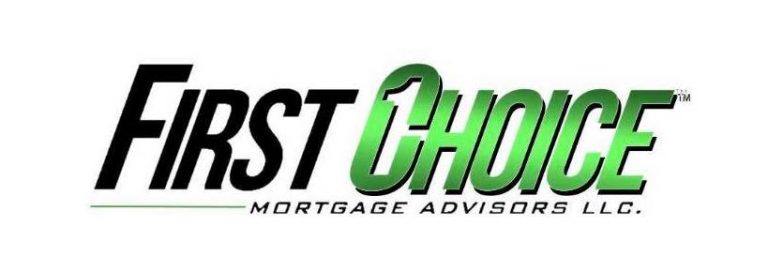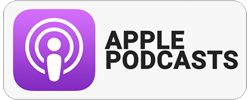Your success and your failure financially are all up to you. Learn how to bank on yourself and come in with a financial plan. To help you with this is Sarry Ibrahim, the founder of Financial Asset Protection. He helps his clients with financial strategies so that they can meet their goals. Chris brings Sarry to the show to share how to identify your objectives before your methods. Learn how to create good financial habits and how to accept failure. All of this and more on today’s episode of FUEL with Chris Swartz.
Listen to the podcast here:
Sarry Ibrahim – Bank On Yourself
I’m here with our guest, Sarry Ibrahim. How are you?
Chris, thank you so much for having me on. I appreciate it.
I’m glad to have you on the show and I’m glad you reached out. It was a random connection. I appreciate you finding the show. I’m grateful for the opportunity to share your story with our audience here. Sarry, why don’t you give our audience a quick intro. Your company is Financial Asset Protection. I’ll give you the floor to do a quick intro of yourself and how you ended up here.
I run a company called Financial Asset Protection. We’re located in Chicago, Illinois. We help clients in all 50 states. We help them with financial planning, wealth management and retirement planning. Most of our clients are real estate investors in the real estate niche, but it’s not exclusive to that. We also help full-time employees and other types of business owners. I’ve been in this industry for a number of years.
I also have a podcast called Thinking Like A Bank. It went up in March 2021. The goal of the podcast is to share more awareness about banking principles. We’re sharing strategies and principles that banks use so that people can apply them and find more financial freedom in their lives. That’s what I’m an advocate for is helping people find financial freedom. I’m more of a financial coach. For those of you who are familiar, I’m a Bank-On-Yourself professional. It’s also known as the infinite banking concept. Our main focus for our clients is using infinite banking and Bank-On-Yourself to grow their businesses and real estate portfolios.
Thank you so much for sharing that. You did a way better job than I would have done on your intro. There’s a lot to unpack here. One of the reasons I felt it was appropriate to have you on is I always like to connect with people that are helping other people level up, whether it’s in their finances, fitness, relationship or whatever it is. For everybody in the audience, FUEL is an acronym for Foundations Under Extraordinary Lives. I say that all the time on the show, but we all have these things that have happened and decisions that we’ve made that have led us to where we are now, right here as we take this show.
There are all these experiences in our lives that make up the foundation and being in real estate as a mortgage professional connected with the real estate world. That foundation, that word is so strong to me because, in my business, there’s the foundation of your house in the real estate world and then there’s the foundation of your life and getting everything built and in order. One of the biggest things is that financial fitness.

Bank On Yourself: People should take more courses on economics and finance in high school.
It doesn’t have to be too serious, but it’s so that they can spread their financial literacy at a younger age.
What we also unpack is we’re going to get into a little bit of the nuts and bolts of that. We put all that on the shelf. We dive into the individuals here on the show, so who you are and how you ended up on this journey of wanting to be in financial services and asset protection. I’ll turn the floor over to you and say, how did you get here? What experiences have you had that opened your eyes to these concepts that made you want to jump in and help people?
We all have our whys. We all start somewhere with our whys. I was always very curious about money. It’s not just wanting money as a cool thing. It’s more so of as a tool in how it can help people and how it’s a route for a lot of problems and opportunities. I didn’t know exactly what I wanted to do, so I went to school to get my MBA. While I was doing my MBA program, I didn’t have a concrete plan as to what I wanted to do, whether it was financial consulting or accounting. I had no idea what I was going to do. I said, “I’ll stick to the program.” I got a concentration in project management.
I thought I was going to go more into project management, but then during that time, I started working at Allstate Insurance. I used to work in sales. I was helping clients with auto insurance, homeowners, commercial insurance and life insurance. This opened my eyes to how people value certain things in their lives and how they want to protect it. Also, their perspective on insurance is because some people are advocates of insurance while other people look at it as another commodity or bill. For the most part, it is that. It’s just another bill that you have that you need to take care of.
You, being a mortgage advisor, can’t put a mortgage through unless you have homeowners’ insurance on it. In a lot of states and almost every state, except for two states, you have to have auto insurance. When people come across insurance, they think of it like something they have to have in order to get to the next level. During this process of working with clients, I started to learn a lot about how they looked at the money in general. That opened my eyes to what people value, how people prioritize and how people make certain decisions.
This was all intriguing to me now. I want to go further into this field and then I transitioned into Medicare. I started working with people who were in the city of Chicago, who were 65 years old and up and they were retiring. They were merging from their employer plans to their individually-owned Medicare plans. Here, I am now, talking to people about personal questions about their financial situations and I was helping them make these decisions. It was rewarding helping these people and I still do. I still help people in the Medicare space.
One of my clients asked me if I could help him with life insurance. He mentioned there was life insurance with cash value in it that grows over time but I had no idea what he was talking about. I had this habit of listening to people and then finding something that could help them with it. I was also on that curious hunt. I went to Amazon and searched for books on life insurance. I came across this book called The Bank On Yourself Revolution by Pamela Yellen. This book grabbed my attention in that it talks about the financial problems a lot of people have, not just retirees but of people of all ages have.
What you can measure, you can control.
At the end of the book, there was a section that said, “If you wanted to join our organization as a Bank-On-Yourself professional.” I applied to the program and got accepted. I went through the training and now I’m a Bank-On-Yourself professional. That’s when I started the company, Financial Asset Protection. I help clients with the Bank-On-Yourself strategy and I can get into more on that exactly what it is. I found the field of financial planning more from listening to people and see and using it as a tool to help them solve their problems.
There are so many different ways that you can approach financial planning. One of the things that I find in the mortgage space is where I’m looking at the entire picture. You can’t hide anything from me or when you’re going through the process, we’re going to see everything. We’re going to see your income, debt, liabilities, good credit, bad credit or whatever that looks like.
It’s amazing to me how many people go through life and they take care of everything. We take care of our kids, fitness, how we eat, how we do and how we look. There’s this piece, which is a huge piece of the quality of life that you live, the legacy that you leave, everything. Many people don’t look at it. It’s like, “I know about that, but I’ll get around to that someday maybe.” We’re all busy. I find it interesting that through the process that people don’t take care of or invest as much as they do in other areas of their life. How do you approach that and get people to take a look at these things?
That’s a good point you mentioned. A lot of the times, you’re doing analysis with clients where you see their entire financial situation. Sometimes when I’m dealing with clients, they’ll have, for example, a lot of debt or some issues in their life. Usually, people don’t become financially literate until after a problem happens when they have credit card debt and they’re dealing with credit card companies. They’re trying to consolidate or settle it or they’re dealing with lawyers in some situations.
That’s where people become financially savvy is after the fact. That’s obviously an issue. It’s not their fault. A lot of people were not taught financial education unless you’ve gone to college or that’s what you do for a living. You’re an accountant, bookkeeper or mortgage advisor. Usually, that’s when you know about money, but for most people, they’re not in those fields.
One thing that should be changed is we should learn like, for example, in high school. We should take more courses on Economics and Finance on a basic level. It’s nothing too serious but to spread more financial literacy at a younger age, so that way people aren’t in these financial traps when they get older. There are certain things that you could do as habits. For example, we stay healthy by going to the gym. We’re lifting weights, running, doing cardio and different things like that to stay in shape and that we have different goals.

Bank On Yourself: Make it a habit to update your personal financial tracker every day. By doing this, you get to know your financial self very well and you become more financially self-aware.
A couple of things that you could do as habits are, for example, I have something called a personal financial tracker. This is something that I do every single day. It takes me about ten minutes to do. It’s like an Excel sheet. I log into it and open it up every day. It’s the first thing I do in the morning. I go to my checking account to see how much debt is, my savings, cash value, life insurance and other assets. I have a cryptocurrency. I go to the right side of it and that’s how much debt I have.
If I have, for example, two credit cards, I’ll put in the debt for each one. The other debt that I have at that given time, I figure out the total debt and the total assets for that day. I also look to see if I’ve earned any income for that day and put that in there too. As you’re doing this as a ten-minute habit every day, you get to know your financial self very well. You become much more financially self-aware. You understand your spending habits, how much money you’re making and how much money you’re spending.
It gives you a chance to measure because it’s like the saying, “What you can measure, you can control.” If you get to know your numbers well and you can understand, then you can build momentum behind certain things to look at. For example, over the last couple of years, I’ve reduced my credit card debt dramatically and that has given me the momentum to do other things. It builds more financial awareness. That’s one thing I do is a personal financial tracker to build more financial awareness.
It’s like going to the gym every day. You got to build that muscle and get yourself trained to do that. When you go to the gym that first week or that first couple of days back, it’s uncomfortable. You wake up. You’re sore the next day. You’re doing things. I don’t know many people, but maybe I’m speaking for myself. If you’ve taken some time off from your physical fitness and you get back, it’s not always fun. I would correlate this to, if you’ve neglected or life has gotten in the way and you haven’t been able to take a look at your financial fitness, this is a great idea and simple tool.
This is like going to the gym. It’s not hard to lose weight and get in shape. It’s just discipline. You take in less calories. It’s basic, but we look for these massive solutions that are going to fix it. It’s like, “If you burn more calories than you take in, you’re good. We don’t need all of the stuff.” It’s a matter of tracking it and figuring it out. I like this analogy. If you would share that financial tracker with our audience. You’re in this space helping people get everything in order to get their finances in order. What does that do for you as an individual? How does that fuel you and motivate you on a daily basis?
It’s like how I mentioned problem-solving. I enjoy solving problems and when somebody thinks that, for example, they’ve hit rock-bottom. We would go through their whole financial situation. It’s like, “No, you have it. You’re in a good situation because of this factor or that factor or these factors.” There’s a lot of potential on the client side. People have a lot of potentials. I like to uncover that. It’s all about understanding where people want to go.
If you were to ask me, “What’s one problem that’s out there in the financial world?” It’s people either make decisions based on methods or based on their objective. Both have their reasons, but in the financial services world, the problem now is people are making decisions on methods. For example, they’ll hear about a strategy or some method that everybody is doing. They want that first before considering their objectives and I think the opposite should happen. People should identify their objectives first and then, from the objectives, find more than one method that could fit their objective.
Focus on your goals and have no limits to them. Think of all the things you want out of life.
When you do that, you stay on track. You’re not just chasing different ideas or things that other people are doing that may not be relevant to your financial situation and that may not even be true or accurate to your situation. It’s important to identify first what it is that you want to accomplish. Focus on your goals and have no limits to them where you can focus on them and think of all the things you want out of life. Also, find ways to meet those goals and objectives that you have.
Are you saying I shouldn’t dump all my money into cryptocurrency and my game stock? I should have a plan first. Is that what you’re saying?
Yes, exactly. You should have a plan and not chase shiny objects just because everybody else is chasing them. I’m not saying you’re doing this. Even when I have clients, they’ll call me and say, “Should I do day trading?” My question is, “What is it that you want to uncover and accomplish?” Figure that out first. I can help you figure that out from a coaching perspective and side. Let’s see what tools and methods are out there that can help connect you to your goals.
I love that because that’s what comes first. It ties to your financial why.
It’s like if you were building a home. You would need tools and resources to do so, but you wouldn’t choose the tools and resources first. You would choose the layout of the home you wanted, the idea of where you want it, what part of the city you want it and the land. You would find the people who could help you do that. You’re not going to, for example, say, “I prefer hammers over drills or I prefer drywall.” It’s going to be a combination of all those things that are going to be needed for your objective.
I love that approach. It’s a great way to look at it. Taking these basic steps is not that hard. Take some time. Figure out what you want and what your objectives are. Your objectives are going to be different than mine. You may have children, I may not or vice versa. You may be single, married or whatever. There’s no one solution. I love the way you answered that client. It was like, “Should I do day trading?” “Maybe? What do you want out of this?” One of the things that come to mind too is, oftentimes, we’re worried about failures, “What if I pick the wrong solution or thing?” What do you think about failure?
I love failure because it’s an indication that you’re doing something. I even came across this where it’s like, “What should I name my company? What should I name the domain name?” It’s as if the potential could be the wrong answer. The reality behind that is you don’t know until you execute and implement it and then find out afterward. That has been one of the best things I’ve learned in life. You don’t want to put too much thought into things that you don’t know the outcome of. You want to practice it, implement it, execute it first and then see what happens from it.
If the outcome is not favorable to you, if it’s a failure, for example, it doesn’t work, then you’ve learned from that. You can now do it again, tweaking something differently. You could do it a 3rd or 4th time. There’s no limit to what you could do and to the amount of failures you have. It’s a huge indication of progress, in my opinion, because it shows that you’re going in the right direction.

Bank On Yourself: People should identify their objectives first, then find the method. They have to find the method that fits their objective. When you do that, you stay on track.
One problem with failure is that we connect it to report cards, for example. If you’re a freshman in high school and you took a Math class and you got an F in it, the reality is that F is going to be imprinted for the rest of your high school career that you got an F in Math and then all your curriculum changes at that point. People take that same logic and apply it to life, where it’s like, “If I quit my job and then start a business and I fail, I have this F on a permanent report card for the rest of my life.” That’s not true at all.
The reality of entrepreneurship is more like F, another F, a third F, and then maybe a C and C plus and then you start climbing. That’s the approach of entrepreneurship. Most of the time, you start from failure, keep practicing and then work your way up. It’s not just the result that matters, it’s the improvement and the process that matters more than anything.
That’s so true in business and life. It’s like a Peloton bike. One of these trainers is always like, “We fail forward.” It’s what you do. We think of the word failure as such a negative connotation. It’s like, “If you never try anything, how could you fail? Is it better?” There’s that whole thing if you could never fail and not do anything in your life and say, “I never failed,” but you’re never going to grow. It’s like if you look at a batting average in baseball. If you look at how many times you fail with some of the best players in the game, you’re winning by trying and executing some of the time. Some of those are going to be home runs.
Eventually, numbers will be on your side. If you do something one time and it doesn’t work, you do it a second. For example, in sales, convincing people to take action. The first time if they say no, if you ask them a second time, it’s like a 50% chance higher they’re going to say yes. If you ask them a third time, it’s like getting an 85% chance they’re going to say yes. I’m not saying to practice high-pressure sales. I’m saying that the more times you do something, the more likely it is to be in your favor. There’s no limit to how many times you could do something.
True failure is when you quit. In other words, the ultimate person who is in charge of your success and failure is you. It’s about you wanting to either execute something or not wanting to execute it. You make a decision. If something doesn’t work out, it’s because eventually, you made the decision not to work out and then vice versa. When something does work out, it’s because you made the decision to keep going until it works out. I’ve noticed that the most successful people, I deal with clients, associates and joint partners is that they have it in their head that it’s not a matter of if, it’s a matter of what. If something doesn’t work, it’s like a loop. It keeps looping into a success where it keeps going until success is reached.
The cool thing about that is it’s not guaranteed, but oftentimes, once success is reached, you’ve built those mental muscles and that pathway to be able to achieve success over and over. It becomes a lot easier to be successful because you’ve experienced it. You’ve failed forward along the way. You can now avoid those pitfalls. You know what it feels like, what it looks like and when you should pivot. It’s amazing how failures can turn into the foundation of massive success.
Don’t put too much thought into things that you don’t know the outcome of.
One of the great takeaways I want you guys to read is to fail forward. There’s no such thing as failure. In every single instance of failure, there is a gift to be extracted. You may feel like you failed. You may look around and say, “I can’t believe this happened.” Keep looking and find the lesson that you can extract or the gift in that failure. We talked about that a lot, looking for the gift. You have to take on these things.
We had somebody on the show that talked about an experiment where they planted a tree in a biodome-type situation. The tree was not exposed to any elements. It was in perfect condition. Over time, that tree with no wind and anything fell over. It was never met with any resistance or anything for it to build strong roots to be able to withstand anything.
If you don’t have these failures, it’s going to be a lot more difficult to build the foundation and the strength to forge through because life throws you curveballs. It’s not always a perfect condition in all areas. You’re going to have to pivot and deal with some curveballs. Being prepared and having gone through those failures is huge.
Thanks for unpacking that with me. I want to throw a couple of other things at you and then wrap up here. We’re going to figure out where we can connect with you and how we can find you on social. One of the things here is you talk with a lot of investors, business owners and real estate all over the place. If you were to invest in your business or save cash, I know you have a preference. What do you prefer? Investing in your business or saving cash? What are your thoughts on that question?
That’s a good question and definitely a concern of mine a lot of the times. For example, “Do I reinvest my profits? Do I save them?” With the Bank-On-Yourself concept or the idea of becoming your banker, you could do both. For example, you could save and then from your savings, borrow against the savings and then leverage and use that to reinvest in your business. That’s exactly what I do. There’s a book that talks about the strategy in how you could use it, especially from the perspective of saving and using that money. It’s called Becoming Your Own Banker by Nelson Nash. I can send the audience a free copy of the book if they reach out to me.
To answer your question, it depends on the situation, but I want to do both. I want to grow liquid capital and liquid cash and, at the same time, be able to reinvest it into my business. In some angles and parts of the business, it’s a way to scale up where for every $1 you invest, you could see $2 or $3 in 10 or 20 years. Obviously, if I make it a habit to reinvest back into the business, I could see much more potential growth in the company growing than in other places. For example, leaving in a savings account.
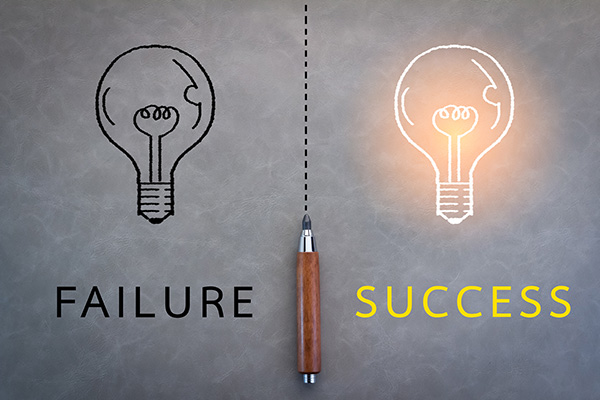
Bank On Yourself: True failure is when you quit. The person who is in charge of your success and failure is you. It’s about you wanting to either execute something or not wanting to execute it.
I don’t suggest leaving money in a savings account for a couple of reasons. One, for inflation. As the price of goods and services increases, the value of your money sitting in the bank decreases. Your buying power goes down. It’s not just that. Also, if you have money in the bank and you’re, for example, an entrepreneur, you’re losing the opportunity costs. You could have earned it had you used that money for different purposes. It definitely takes an integrated approach where you’re using the money for different functions and purposes.
Some examples of what I reinvest in, I invest in podcasting. It has become a big part of my business, both on the guest podcasting side and hosting podcasts. I invest in that by getting on other shows like this. I have assistants that help me with it that do a fantastic job. I’m investing in employees. I’m writing a book that’s costing me money in editing and copywriting.
I have my website and I’m building another website. I’m reinvesting back into my business, but I’m also considering how do I grow cash for the future because I don’t know what’s going to happen in the economy, to my business and in the future. I would prefer to have some liquid access to capital to cash in the future if something were to happen.
You hit the nail on the head with my financial views on that same question. As a business owner, First Choice Mortgage Advisors is my company, along with my partner. We’re often faced with those decisions, “We’ve got this cash. Do we take it out on distribution or do we double-down and reinvest?” I love how you’re reinvesting. That’s how we connected. You’re in Chicago. I’m outside of Philadelphia. Your assistant hit me up and said, “We like your podcast. We would love to have the opportunity to talk about it and see if it would be a fit,” and here we are.
You’ve invested in making this happen. I appreciate your time and coming to the show. There’s a whole lot to dive into the details on the Bank-On-Yourself philosophy, different types of insurance, whole life insurance and all these different ways you can structure your financial protection. If somebody wants to connect with you to learn more about the Bank-On-Yourself principles and what you do, what’s the best way to find you?
The best way is our website, FinAssetProtection.com. There, you can schedule a call, connect me on LinkedIn, check out our YouTube channel, and check out the podcast all from that website. If you say you came from Chris’ show and you reach out for a free fifteen-minute intro call, I’ll send you a copy of the book Becoming Your Own Banker by Nelson Nash. You just have to reach out by going to FinAssetProtection.com.
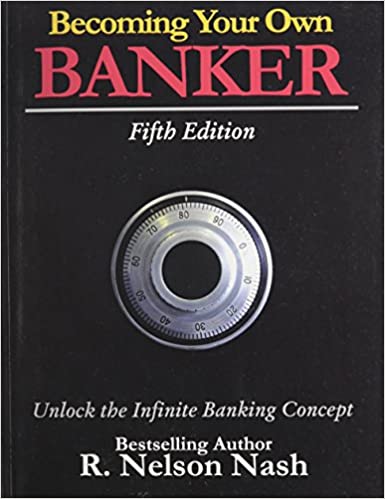
Becoming Your Own Banker:
Unlock the Infinite Banking Concept
Thanks for throwing that out there with the consultation and also with the free book. We appreciate it. As we wrap up, I’m going to hit you with our rapid-fire, which is three simple, easy and fun questions. Essentially, you’re stuck on an island and you’re not getting off the island. One person outside of your immediate family in that circle to whom you would take with you.
We don’t want to get you in trouble. We know you would probably take your family and those people. We’re going to put the disclaimer out there. One person, celebrity or living, that doesn’t matter. Anyone that has had an influence or that you would like to hang out and be stuck on an island with, who are you taking with you?
This is a tough one. I would probably be worried at that point and one person who I see in movies, like the actor, Denzel Washington. He seems to have everything, at least in movies.
If anything comes along, you want Denzel to have your back. The second question, I know you’ve dropped a couple of good books in our conversation here. One book that you think our audience should check out and that has had an influence on your life?
One book other than Becoming Your Own Banker, another book I recommend is Mindset by Carol Dweck. That book is amazing, especially for entrepreneurs. It’s for people looking for that next level in life, that higher up-level in life, to get to the next platform. The book pretty much talks about the differences between a growth mindset and a fixed mindset. A fixed mindset is when you rely on your fixed qualities, like things that you currently have and currently know, and then you make light decisions about that.
Whereas a growth mindset is you make decisions about things that are much bigger than you. Rather than relying on things that you can’t control, you rely on self-discipline and improvement to get you to those goals that you want. Every athlete, entrepreneur and person looking for promotion should read the book Mindset by Carol Dweck, for sure.
That’s definitely one I haven’t come across. I’ll check that out as well. Last fun question, what are you taking with you? What’s your favorite food or guilty pleasure? What would Sarry have to have on the island?
I love listening to podcasts. I listened to about two podcasts every day. I take notes on them.
Failure is an indication that you’re going in the right direction.
I mean food. Are you going to eat a podcast?
I thought it was anything. Ice cream. It will probably be good for you.
Who cares? You’re stuck on an island. My family and I have a home at the beach in New Jersey and we’re here for most of the summer. A lot of the work that I do can be done remotely, obviously the podcast and the business through the mortgage business. Ice cream is my nemesis down at the beach. There are so many ice cream shops. I have to negotiate with myself what nights I’m going to get ice cream. Sarry, it has been a pleasure having you on the show and getting to meet you. This is the first time that we’ve met. I appreciate the time and I look forward to connecting with you on your podcast.
On that note, we’re going to wrap up this episode of the show and ask anybody out there reading. If you’ve got something out of this, do us a favor. Give us a five-star rating on iTunes. Share it out there on social. If you have any questions, reach out to Sarry. He can help you with anything with regard to all of the stuff that we unpacked here. The free book, the fitness planner, and that consultation are out there. We appreciate it.
Thanks, Chris.
Important Links:
- Financial Asset Protection
- Thinking Like A Bank
- The Bank On Yourself Revolution
- Becoming Your Own Banker
- Mindset
- Sarry Ibrahim – LinkedIn
- Sarry Ibrahim – Youtube Channel
About Sarry Ibrahim
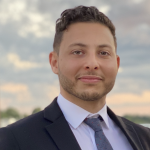
Sarry started this journey when he was in grad school completing his MBA. He worked for companies like Allstate, Blue Cross Blue Shield, Cigna Healthspring, and Humana before founding Financial Asset Protection, a financial services firm that focuses on one sole concept; the Bank On Yourself Concept, also known as the Infinite Banking Concept.

